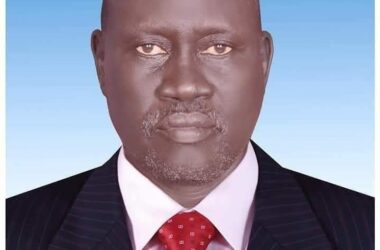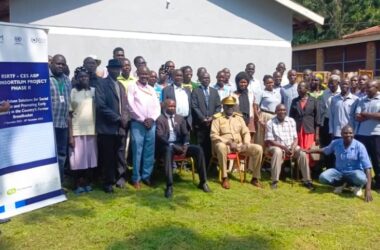
By Philip Buda Ladu
The Minister of Justice and Constitutional Affairs has finally tabled the permanent Constitution Making Bill 2022 to the Reconstituted Transitional National Legislative Assembly (R-TNLA) in its Ordinary Sitting No.4/2022 for its deliberations and enactment into law.
The Minister of Justice and Constitutional Affairs, Justice Ruben Madol Arol tabled the constitution making process draft bill 2022 to the R-TNLA on Monday 11th April 2022 about 7 months later since it was approved and passed by the Council of Ministers last year in mid-October 2021.
Minister Madol said the purpose of the bill is to provide for the establishment of the legal framework to govern the process of the permanent constitution making process and to outline; the design, form, powers and functions of the mechanisms to be involved in the permanent constitutional making process.
“Allow me to present to you the bill entitled “the Constitution Making Process Bill 2022” for competence and appropriate action. The bill is in conformity with constitutional legal and political guiding principles, objectives and ideals in the Revitalized Agreement on the Resolution of the Conflicts in the Republic of South Sudan (R-ARCSS) 2018 and the Transitional Constitution of South Sudan 2011 as amended,” Arol moved the bill on parliamentary floor.
Arol said the bill was drafted in accordance with provisions of article 6.9 of the R-ARCC 2018. Each provision shall apply to the permanent constitution making process which grants the Revitalized Transitional Government of National Unity (R-TGONU) the power to initiate an Act to govern the permanent constitution.
Overview of the Bill
The Bill has four chapters, thirty-five sections and an ANNEX, elaborated below;
Chapter One; named the “Preliminary Provisions” which is covered in (sections 1 to 6), the chapter contains the preliminary provisions dealing with title and commencement, purpose, repeal and serving, authority and application of the bill.
It also contains definitions of terms used in the bill and their interpretations. The chapter one further outlines the guiding principles of the permanent constitution making process.
Chapter Two; named “Mechanisms of the Permanent Constitution Making Process” is contained in (sections 7 to 32), this chapter provides for the mechanisms of the permanent constitution making process, which are the Reconstituted National Constitutional Review Commission (R-NCRC), Constitutional Drafting Committee (CDC) Preparatory Sub-Committee (PSC) and National Constitutional Conference (NCC).
The Chapter two calls for the reconstitution of the National Constitutional Review Commission, composition, nominations and appointment of the members, tenure and loss of membership, powers and functions of the Secretariat of the Commission.
The Chapter also provides for the establishment of constitutional drafting committee, composition, eligibility for recruitment and procedure for the recruitment, powers and functions of the committee.
It also provides for the appointment of members of the preparatory sub-committee to convene the conference, composition, nomination, powers, functions and the dissolution of the sub-committee. It further provides for the national constitutional conference in its compositions, powers and functions, quorum, decisions and the secretariat of the conference and all the mechanisms shall be guided by the guiding principles.
Chapter Three; covers the “Stages of the Constitutional Making Process” that are contained in (section 33) the chapter provides for the stages of the constitution making process; in its stages which are stage 1,2 and 3 plus an Annex which the Minister said is an integral part of the Bill.
Meanwhile, Chapter Four; on “Financial Provisions” tackled in (Sections 34 to 35), the chapter provides for the sources of funding of the constitution making process stating that all accounts and other financial reports of the mechanisms shall be audited by the Auditor General of the National Audit Chamber.
“Conclusively, in light or before going I hereby respectfully submit the Constitution Making Process Bill 2022 to You after its approval by the Council of Ministers in its Regular Meeting No.14/2021 held on Friday 15th October 2021 via resolution No.65/2021 for your deliberations and enactment” Justice Arol submitted to the lawmakers.
For her part, Jemma Nunu Kumba, the Speaker of the R-TNLA committed the bill to the Justice and Legislation Committee saying the Justice and Legislation Committee should start their work immediately and report back to the parliament within the 21 days.
“Hon. Members of the August House the Constitution Making Process Bill 2022 has been presented and it’s hereby committed to the Committee of Justice and Legislation of the R-TNLA and the Committee shall report back to this august house within 21 days” Rt. Hon. Speaker Nunu Kumba authorized.


